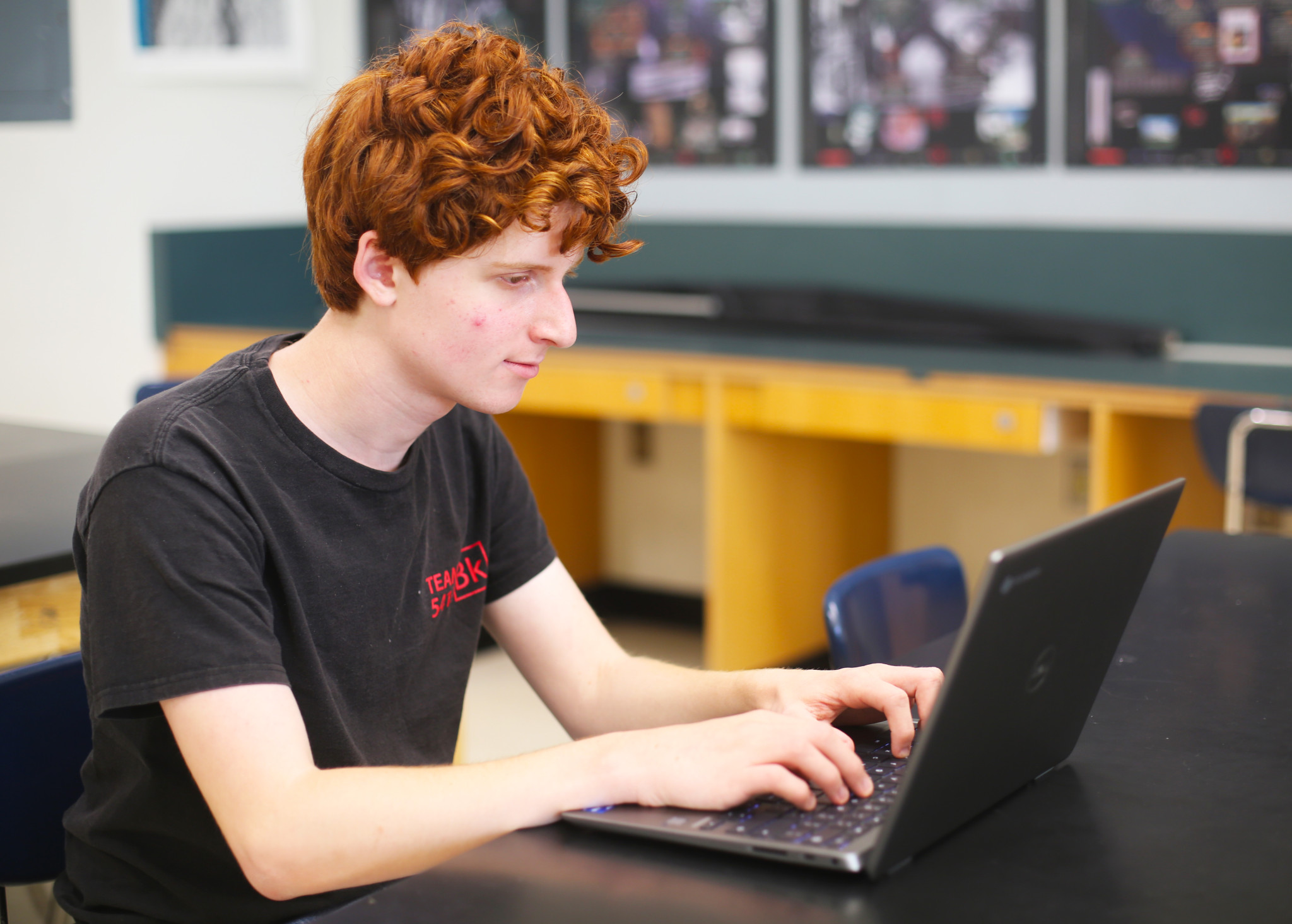“I mean, they’re faster, they have better screens, better keyboards … also, because the school Wi-Fi and Go Guardian can be pretty restrictive,” Berkeley High School senior Elijah Taylor said in reference to students bringing personal computers to school to use instead of Chromebooks that BHS provides.
It’s common to see students using personal computers in class at BHS for a variety of reasons — Taylor cited issues including slow processing speeds, the school’s internet firewall that restricts websites like Youtube, and not being able to use applications aside from the Google Chrome browser as reasons for why he brings his personal computer to class. Personal computers are technically not permitted at BHS, but it’s common nonetheless.
“Chromebooks are the only devices that are supposed to be used in the classroom. But there have been times where I allowed students to use personal devices,” Itzel Calvo, a ninth grade Ethnic Studies teacher, said. “Especially towards the end of the day, Chromebooks die, or some of them are broken, or they just wouldn’t load. So I didn’t have any other choice but to let students use their personal devices.”
According to Calvo, there are some situations in which she would not consider letting a student use a personal device at all, even in the case that there weren’t any school moderated Chromebooks available. For example, if students were taking an exam and there weren’t enough Chromebooks to go around, some students would just have to do it on paper instead.
Fortunately, that specific scenario has never happened before, but lack of Chromebooks has been an issue. Last year, Calvo explained, she couldn’t find any available Chromebook carts during finals.
“That was really hard because we were working on our final project, and some students needed a computer. So I just had them use their personal computers, for their slides and stuff like that,” she said.
Chromebooks carts are on a reserve system, so teachers need to book them in advance. However, sometimes there simply aren’t any carts available to reserve. In this case, it can be useful for students to have personal computers, though usually teachers will alter their lesson plans accordingly.
Although the school’s Chromebook situation isn’t perfect, it is still a very important resource for students. Taylor described it as “digital equity” — or, the idea that all students have access to computers on which they can do school work.
“Everybody has an equal learning opportunity,” Tom Giliberti, a BHS sophomore, said.
Giliberti brings his own computer to school under the belief that it’s faster, but believes it’s important that the school provides Chromebooks.
“I know that there are other schools that are like, ‘bring your own, buy your own device,’ and that can be difficult for parents and students to manage,” Taylor said.
Regarding equity, Calvo believes that bringing personal devices to school introduces an uncomfortable visualization of socioeconomic status into the classroom.
“Another downside of personal (device use) is it just kind of creates this uneven, like, ‘oh, they have a MacBook,’ or ‘they have a newer MacBook than mine,’” Calvo said, “it just creates a weird class dynamic.”
Since some students don’t have a computer at home, or share one with other family members, the presence of personal computers may create a situation in which students are comparing their economic situation with that of others.
On the other hand, Taylor believes that personal computers give somewhat of an advantage, but is unsure if it’s a significant amount.
“I don't know how big the benefits are (to bringing your own computer), but I guess they’re there enough that I feel like it's something that's worth doing.” Taylor said.
As of now, it’s unclear how to improve the school’s Chromebook system — whether this means increasing the amount that the school has or improving their processing speeds, or something else entirely.
“You would need the city to have higher taxes,” Giliberti said, in reference to the possibility of BHS purchasing more Chromebooks, “But I'm not in favor of that. So yeah, it is a solution (for students to bring their personal computers to school).”
Taylor believes, however, that as BHS slowly replaces its current Chromebooks with newer models as the old ones break, the quality of the school’s technology will naturally become better over time.
Either way, Calvo has found herself decreasing her class’ Chromebook use during lessons. Although it takes more prep time, according to Calvo, she’s seen much less distraction and more face to face interaction in her classroom.
“It just creates a more natural environment in the classroom,” Calvo said, “it just feels more organic.”
Any improvement to the Chromebook situation that the school could make would have a downside as well. Students bringing their personal computers to class has its benefits, certainly, but that situation also has its drawbacks.
“I guess it’s better that we have Chromebooks than nothing,” Taylor said, “I'm not sure about recommending (bringing a personal computer). I guess I’d say tentatively yes, but with the caveat that bringing your own computer, there’s more distractions available to use. So if you think you're not gonna be able to manage that, then don’t.”





